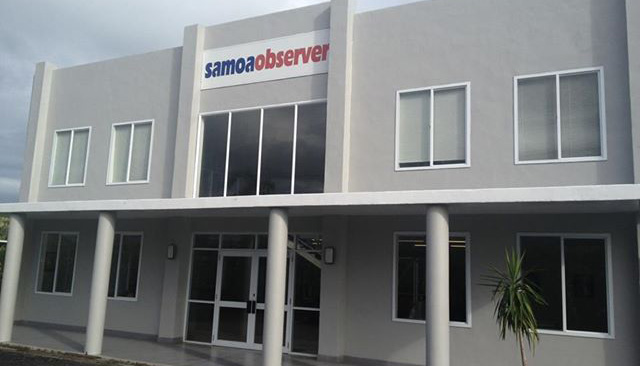
The state of media freedom in Polynesia
The issue of the state creating a national media council to hear complaints against media has raised its head in recent weeks in Polynesia, as the Samoan government and privately owned newspaper, Samoa Observer, continue their standoff, and verbal attacks on each other.
It started with claims by the Samoa government that certain media – in this case, Samoa Observer – does not have accountability and has violated media ethics by “getting it wrong often” and having to make apologies regularly.
The Samoa Law Reform Commission supports the setting up of a national media council to hear complaints against media, but recommended that a two-year period be given to allow local media to self-regulate through their own independent media council. The implication obviously is that if local media fail to self-regulate, government should step in and bring state controlled regulation through a state-established national media council.
What is most concerning is that government has tightened its grip on media freedom by breaking the two-year timeframe recommended by the Law reform Commission.
Pacific Freedom Forum (PFF) has called on the Samoa government to halt plans for setting up a state media council and to allow time for self-regulation to take its course.
Threats were issued to ban journalists from parliament, and attacks on journalists purported to be initiated by government, have created what Samoa Observer editor, Mata’afa Keni Lesa, calls a “culture of fear” in the country.
“We are against government being involved in the media council,” Mata’afa said. “Government should regulate themselves… and not the media.”
What the Samoa Observer editor fears is that “the media council would be used (by government) to control media.”
Mata’afa says that the Prime Minister, Tuilaepa Sailele Malielegaoi, has come out accusing Fiji of all kinds of violations of democratic principles, and yet he himself is acting like a dictator. “We have our own problems,” he said. “Why focus on Fiji?”
Mata’afa says that the most dangerous thing right now in his country concerning media freedom is: “The idea that people think we have a free media environment… it’s far from it… we have a one party state. People have the idea that we are free, but we are not.”
He says that the prime minister has been able to bring all other media under his control. “Samoa Observer is the only newspaper that stands up and asks questions,” Mata’afa said. “We need to be the watchdog of government, not the lapdog of government.”
There have been threats and attacks on journalists in Samoa in recent weeks. PFF chair, Titi Gabi reported: “These attacks, as well as police failure to protect journalists from threats and assault; advice not to answer media questions, and a threat to ban journalists hardly inspire confidence in the future credibility and independence of any media council.”
But it’s not just in Samoa where the issue of having a state controlled media council has become contentious. In Tonga, it seems to be the last bastion in the resilient attempt by the powers that be to control media.
There have been very serious attempts by government in recent years to legislate the setting up of a media council to which all media would be accountable, and that government through its Ministry of Information and Communications would be a part of.
Like Samoa, libel is a criminal offence in Tonga’s laws. Media in both Samoa and Tonga would like to see this law repealed.
Last month the weekly Kele’a newspaper was fined up to $250,000 pa’anga for defamation and libelous damages. The newspaper is appealing the judgment. Tonga’s defamation laws have been used more than a few times in recent years to defend and protect the reputation of those believed to have been damaged by the media through libelous reporting.
But these defamation laws are deemed not to be enough. Many complainants about the media believe that the high cost of bringing legal action against the media leaves them out with no course of action due to not having the money to do so. Thus is the argument for a media council to enforce media ethics and hear complaints against the media. But former Chair of the Tonga Media Council, Pesi Fonua, says that in two years, there have only been two complaints brought to the media council complaints committee.
In Fiji, the recent complaint against freedom of speech was not from media, but from a 40-year-old market seller who made critical negative comments about the prime minister. Ram Chandra was arrested and hospitalised. Police and security offices were alleged to have assaulted him at three different locations.
Just as media are alive and vigorous in Polynesia, so are the many attempts by those who are in power to control it. Taming the media is often done by redefining media freedom, and especially in dislodging its role in scrutiny of power. A state without a critical media is a state where there are no checks and balances of power.

